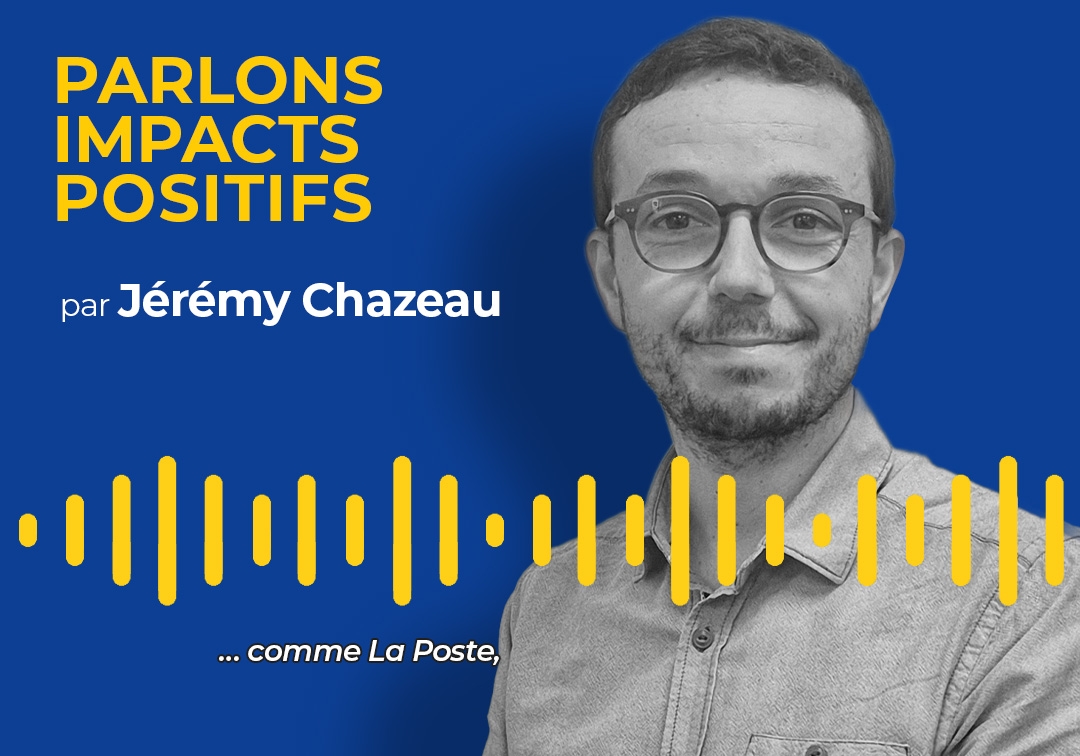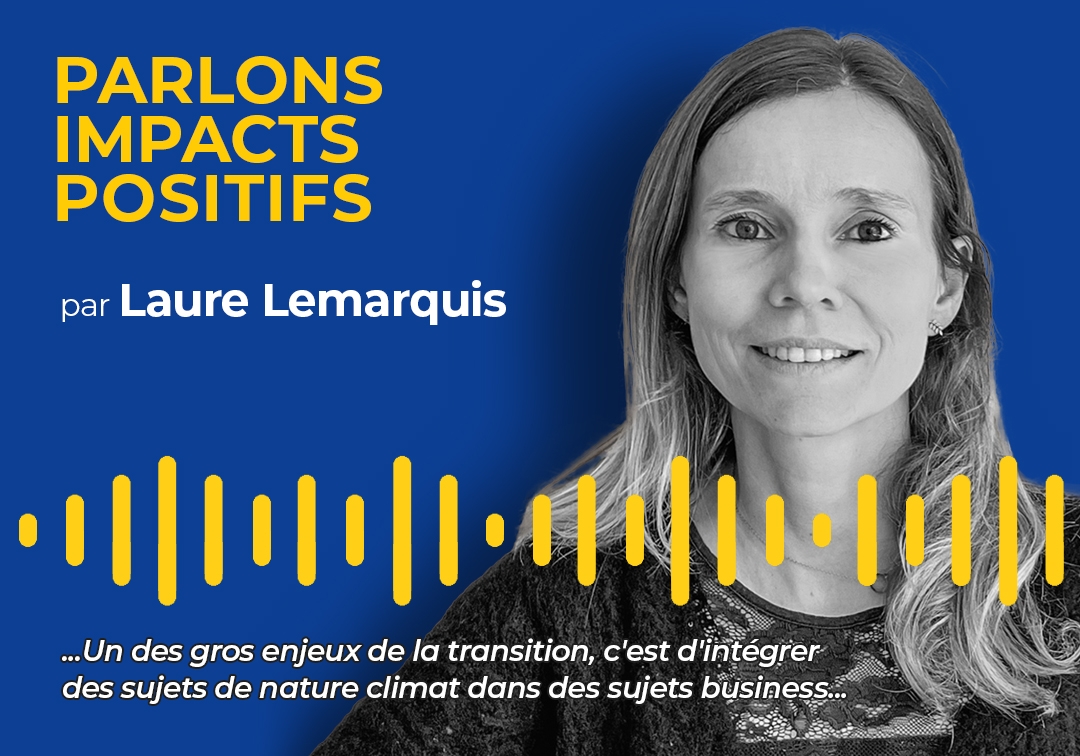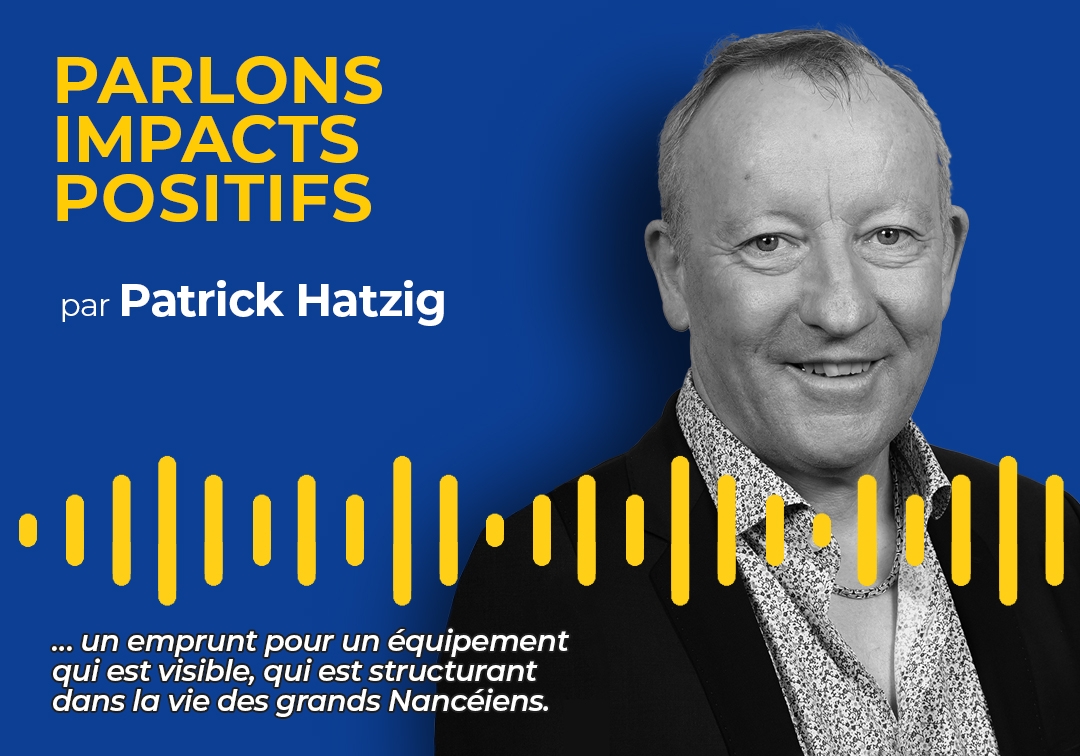La Poste Groupe publishes its 2024 impact report
La Poste Groupe's 2024 Impact Report is a reference publication that gives a glimpse of the group's transformation. It highlights its positive and measurable impacts on society, the economy and the environment through six impact stories. These six illustrations have been selected in line with the materiality work carried out by the group, and are rooted in its raison d'être and the diversity of its activities. Their presentation is inspired by the fundamental principles of impact analysis as developed by the Impact Management Project.
A transformed, forward-looking group
The impact report presents the group's progress towards its strategic objective of sustainable, profitable and responsible growth, the achievements and highlights of 2024, the creation and sharing of value, and financial and non-financial performance.
The report also highlights the group's actions as an attentive, qualifying company committed to social innovation and performance.
Today, our group has undeniable strengths : its ability to meet the essential needs of millions of French people, the solidity of our strategic model and our formidable capacity to adapt. We're pursuing our growth trajectory, backed by our shareholders - Caisse des Dépots and the French State - for the benefit of society as a whole. We're turned firmly towards the future, ready to serve millions of people and help them navigate these transitional times.

Philippe Wahl
Chairman and Chief Executive Officer of La Poste Groupe
Supporting transitions
Guided by its raison d'être, La Poste Groupe supports major societal transitions by reconciling social utility, proximity and responsibility. In carrying out its public service missions and deploying its mission-driven corporate commitments, it is mobilized to generate a positive impact in the public interest.
Being a group with a positive impact
The impact report also gives the floor to representatives of the group's stakeholders : Jérémy Chazeau, Managing Director of Gleam; Laure Lemarquis, Head of Company Change at WWF France; and Patrick Hatzig, Vice-President of Nancy's municipal authority, in charge of mobility.
In their interviews below, discover their views on the Group's impact in supporting digital inclusion, reducing carbon emissions and preserving biodiversity.
MAY 5TH, 2025
Jérémy Chazeau, managing director of Gleam, presents the Pand@ digital inclusion program.

TRANSCRIPTION CAPSULE JEREMY CHAZEAU
Hello everyone. Today we're going to be talking about the usefulness of La Poste and its positive impact on local communities with Jérémy Chazeau, managing director of Gleam, an association that works for social and digital mediation in the Mayenne and Sarthe regions.
First of all, could you tell us a bit about the Pand@ initiative ?
Pand@ brings together all of Gleam's digital initiatives. We have a three-wheeled vehicle, a sort of large electric bicycle, which travels the streets of Laval. The idea is to reach out to residents at the foot of buildings, outside schools, near gymnasiums and community centres, to arouse their interest in digital support. We have a number of tablets, smartphones and computers at our disposal, for the little things that get in the way of everyday life: ‘I don't know how to send my CV via an email inbox; I've lost the password to my email inbox; how do I secure my data online; I need to register my youngest child for after-school care’. For actions that may require a little more time or a little more confidentiality, we also provide appointments at home at the request of users. But the idea is really to give people confidence in their ability to use digital tools, and to accompany them physically, if necessary, to the Etape Numérique of the La Poste Groupe, to a neighbourhood centre or to a social centre to offer group support. Pand@ is an acronym for ‘point d'accompagnement numérique aux démarches administratives’ .
How did the Pand@ project come about and what needs did it meet ?
For us, the idea is above all to respond, on a day-to-day basis, to what is known as the ‘digital divide’. Young people need support, older people need support and I'd like to say that, in the middle, we're dealing with people who need reassurance. Often, in almost 75% of cases, the first approach is a simple discussion, a social connection. It's "hello, how are you? how are things in the neighbourhood? We have a chat, and it's through this discussion that the mediator is able to guide the user in the right direction: "Do you have a specific problem with digital technology ? That's how we overcome the barriers. The key word in this system is spontaneity in the relationship with the resident.
Can you tell us more about Gleam's partnership with the La Poste Groupe ?
We work a lot with the La Poste Groupe, particularly at the France Services office in Saint Nicolas in Laval. In 2024, we helped 426 people with their digital procedures. We've been providing mediation services in post offices in Mayenne for over 20 years. And, since 2022, we've also been providing social mediation in post offices in the Sarthe. The Post Office finances the operation of our three-wheeled vehicle in the neighbourhoods of Laval. I can also announce that from 2025, we will be duplicating all these actions in the south of the department, with actions in rural areas.
MAY 5TH, 2025
Laure Lemarquis, head of company change at WWF France, presents WWF's support for La Poste's decarbonization and biodiversity preservation strategy.

TRANSCRIPTION CAPSULE LAURE LEMARQUIS
Hello everyone. Today we're going to be talking about the usefulness of La Poste and its positive impact on local communities with Laure Lemarquis, head of company change at WWF France, which is supporting La Poste in its decarbonisation strategy and the preservation of biodiversity.
Can you tell us about the links between WWF and La Poste Groupe ?
We've had a partnership with the La Poste Groupe for several years now. We work with La Poste on climate, biodiversity and the circular economy and resources. For example, there's a very fine campaign in some airports to raise travellers' awareness of the fact that it's illegal to return with certain products, like ivory, for example. With regard to the illegal transport of species*, we are a network present in many countries, providing a local perspective on the reality of this type of issue in different countries. And then there's another, slightly more innovative area, looking at technological solutions that could automatically detect specimens of wild species that might be sent illegally in postal packages. With the La Poste Groupe, and in particular its subsidiary La Banque Postale, we are collaborating on projects such as ‘nature impact’, which are projects to improve forest management in order to encourage good practices that promote biodiversity.
What is your view of La Poste Group's climate strategy ?
What we see is that many companies have made ambitious climate commitments. Sometimes these commitments are based on science and use frameworks that we recommend, such as the SBTi** framework, which we have developed and which asks companies to align themselves with the target of reducing the rise in temperature to a maximum of 1.5°C by 2050. This is the case for La Poste group. Its climate strategy is based on the SBTi framework.
Is carbon budgeting still a relatively pioneering approach in companies today ? And what are the impacts for La Poste ?
The deployment of the carbon budget within La Poste group is a really interesting approach to tackling the issue of climate change. I think it's relatively pioneering. What's interesting is to see that the results show that the reduction in CO2 is real. La Poste is genuinely committed to this process. The other interesting thing about a carbon budget, just in the name “budget”, is that the carbon issue is placed on the same level as financial issues. It will be dealt with at a strategic level by a finance department, by the people in charge, the top management. And one of the major challenges of the transition is to integrate climate issues into business issues. And the carbon budget is a very good way of doing this.
*Animal and plant species.
** The Science Based Targets initiative, or SBTi, is an organisation that supports companies through a methodology that is aligned and coherent with the recommendations made by the IPCC (Intergovernmental Panel on Climate Change). To this end, it certifies both public and private company plans to reduce greenhouse gases emissions.
JUN 16TH, 2025
Patrick Hatzig, vice-president of Nancy's municipal authority, in charge of mobility, talks about the choice of an electric trolleybus and its financing as part of a metropolitan transport plan.

TRANSCRIPTION CAPSULE PATRICK HATZIG
Hello everyone. Today we're going to be talking about the usefulness of La Poste and its positive impact on local areas with Patrick Hatzig, Vice-President of Nancy's municipal authority, in charge of mobility. He talks about the choice of an electric trolleybus and its financing as part of a metropolitan transport plan.
First of all, can you explain why the city of Nancy chose an electric trolleybus ?
Ultimately, the choice of an electric trolleybus is part of an overall metropolitan transport plan for Greater Nancy, covering 3, 6 and even 12 years. We had to start with line 1, because we really needed to replace faulty equipment. The trolleybus is 5 times less expensive than a tramway. So the trolleybus is making a comeback in Europe, in Switzerland, Germany and Eastern Europe, and will now be deployed in other cities. In Lyon, trolleys are making a comeback in Montpellier. Cities are now questioning themselves and saying, but after all, why not return to the trolleybus, which is much cheaper.
How long is this line ?
It's 12 km long, with 25 stations. Up to now, ridership has risen by between 30 and 40% compared with the previous line. So that's already positive.
What concrete impact is the electric trolleybus expected to have on users and the community ?
For transport. But transport is not an end in itself. We also wanted to transform the city, to improve the road network and to create greenery. We are planting 300 trees along the route. We expect to make gains in decarbonisation that have not yet been quantified. But it's clear that we're already seeing changes in traffic patterns, as can be seen in car traffic, which are encouraging us to stop using city centres as transit areas.
How did you choose the banking partner that supported you, in this case La Banque Postale ?
La Banque Postale already has a long history with Greater Nancy. Our financial services are quite well supported in this respect, and are taking out a loan for a facility that is visible and that plays a structuring role in the lives of the people of Greater Nancy. We are doing this to improve the lives of our users and residents. And that's why La Banque Postale's support was essential.
